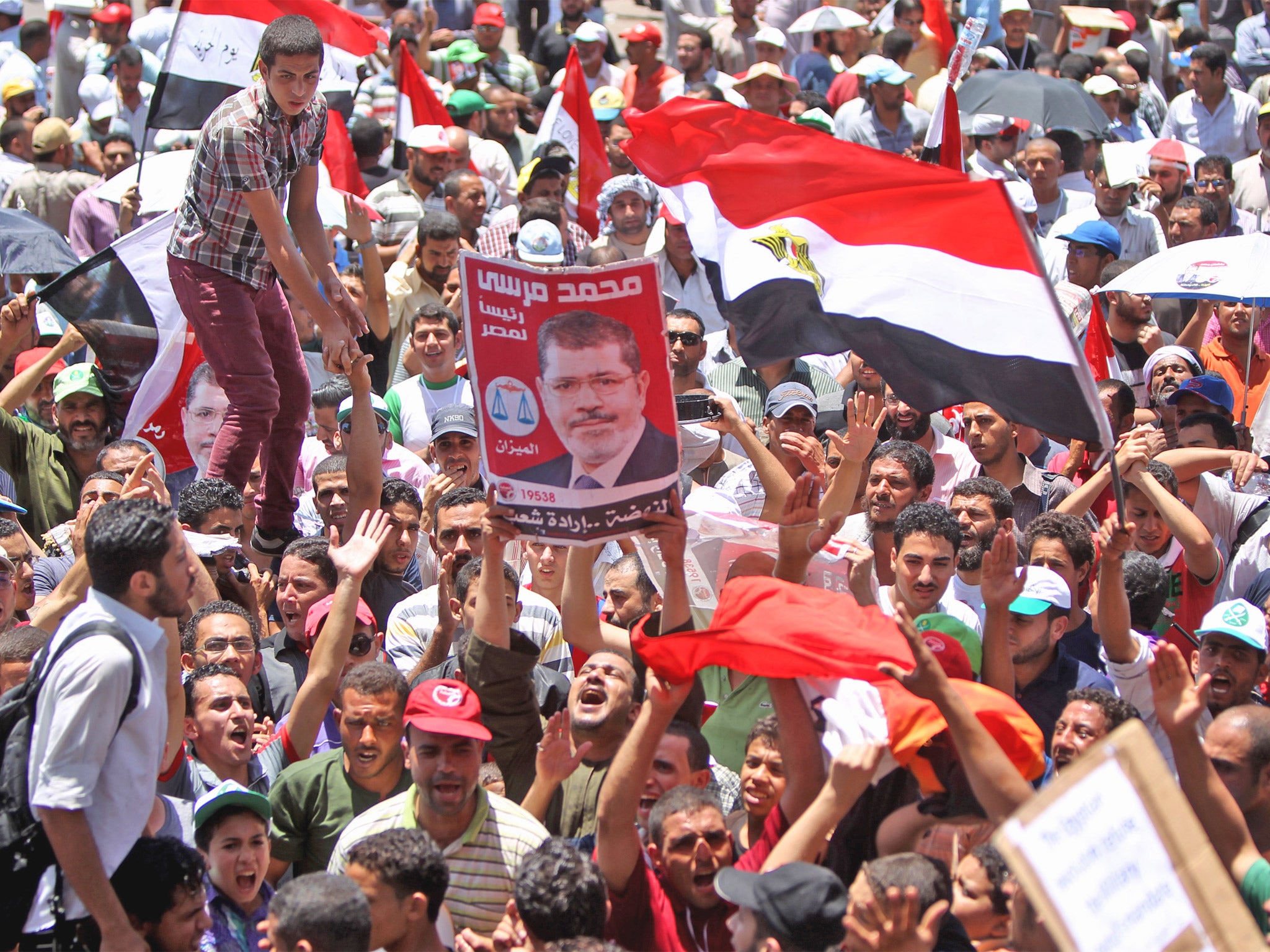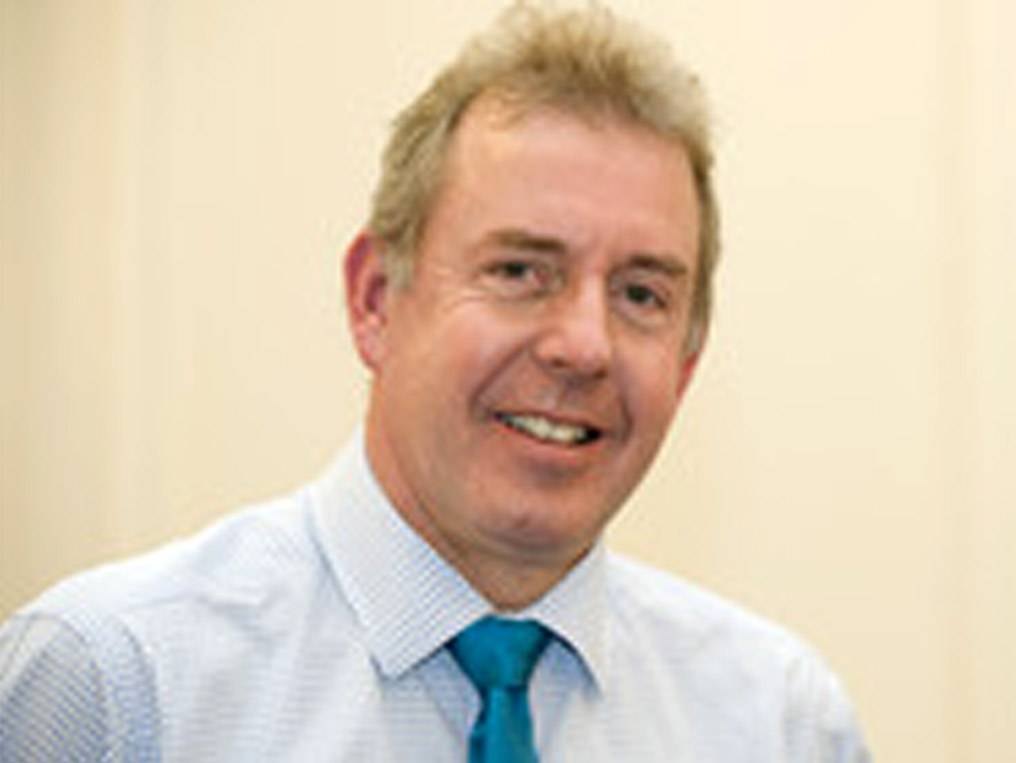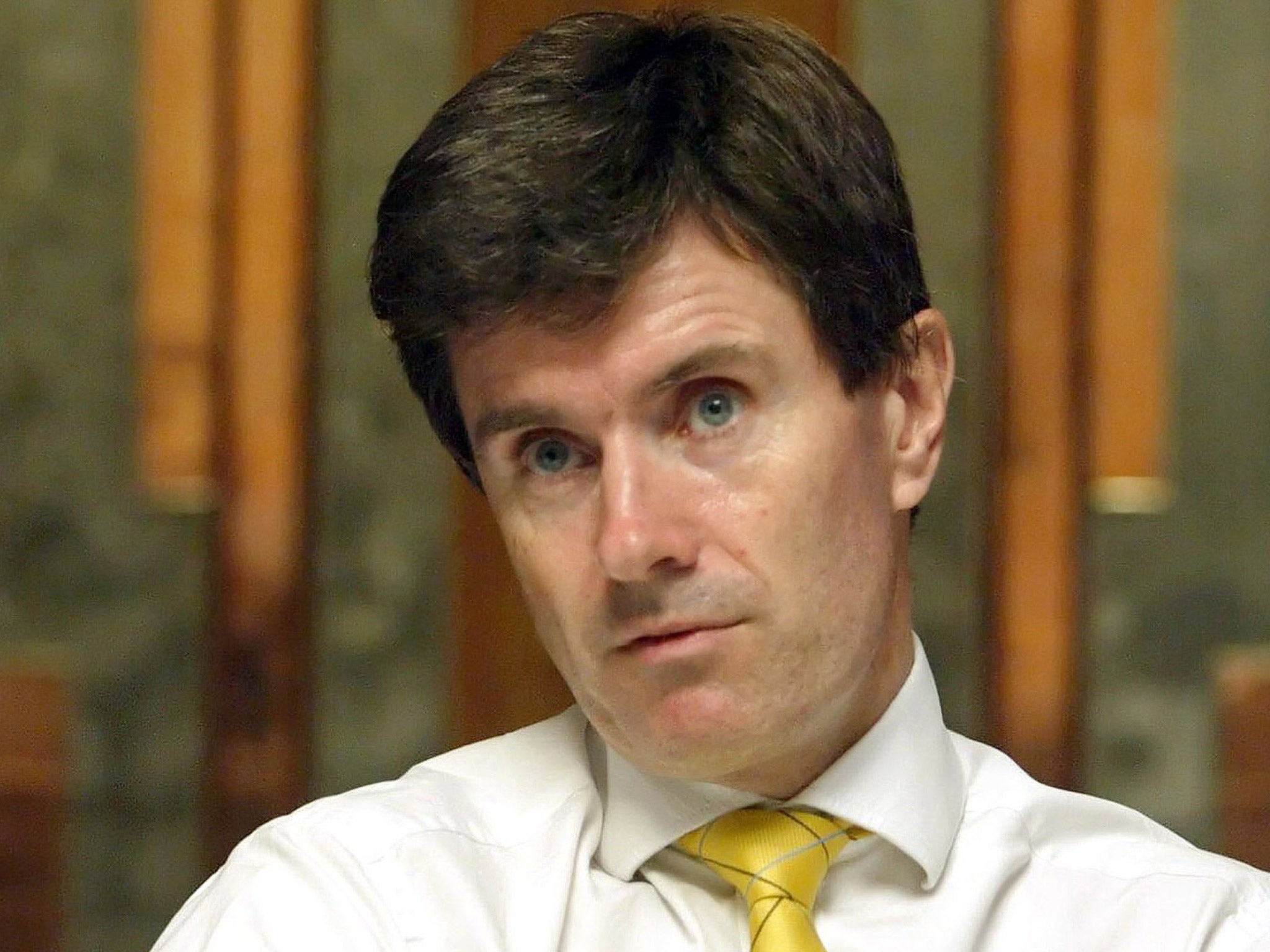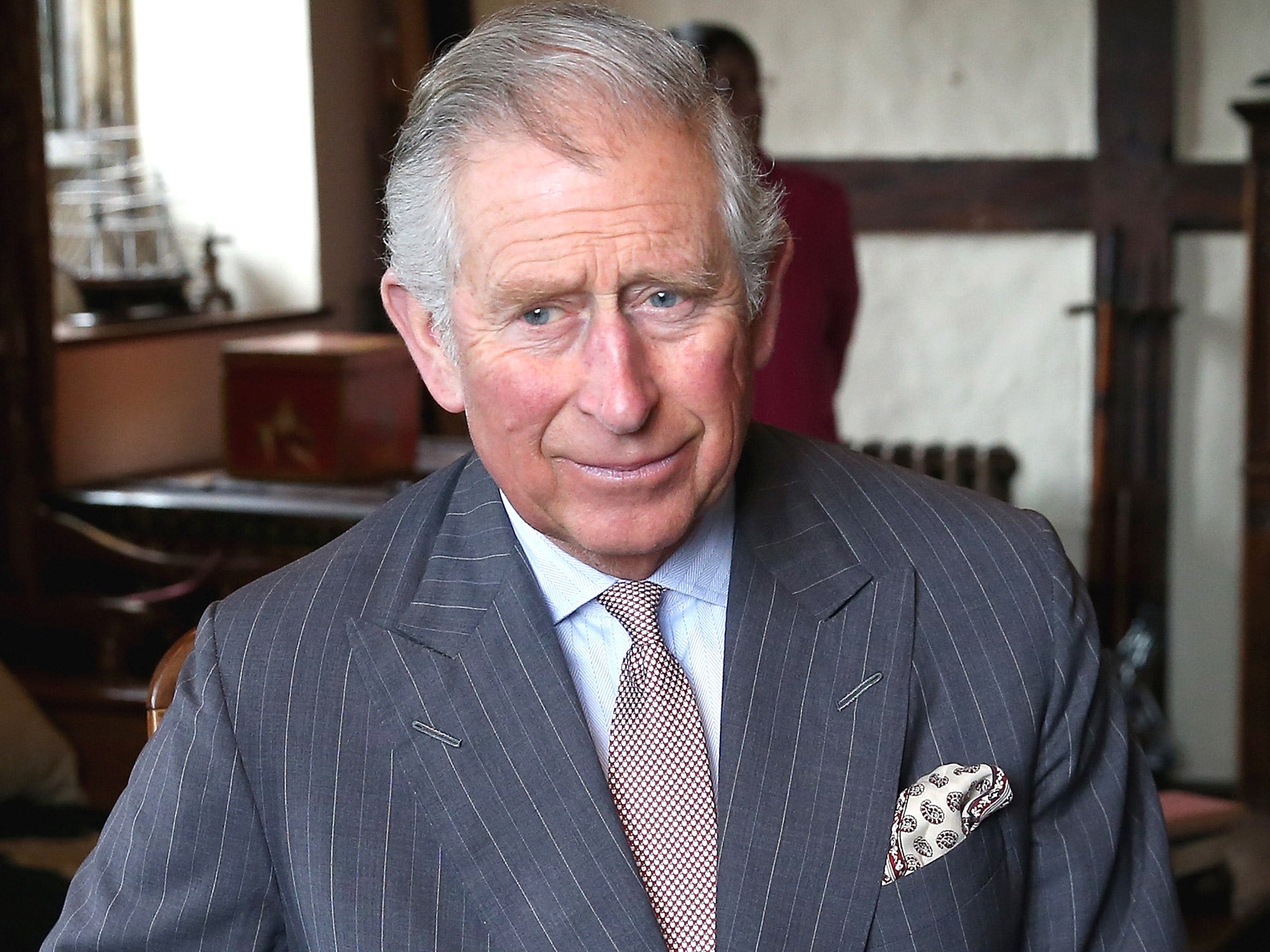Prime Minister steps into minefield with inquiry into what 'the Muslim Brotherhood is, what it stands for and what its presence is in Britain'
Is the Egyptian group really a terrorist threat? It suits some in the Middle East to say so

Your support helps us to tell the story
From reproductive rights to climate change to Big Tech, The Independent is on the ground when the story is developing. Whether it's investigating the financials of Elon Musk's pro-Trump PAC or producing our latest documentary, 'The A Word', which shines a light on the American women fighting for reproductive rights, we know how important it is to parse out the facts from the messaging.
At such a critical moment in US history, we need reporters on the ground. Your donation allows us to keep sending journalists to speak to both sides of the story.
The Independent is trusted by Americans across the entire political spectrum. And unlike many other quality news outlets, we choose not to lock Americans out of our reporting and analysis with paywalls. We believe quality journalism should be available to everyone, paid for by those who can afford it.
Your support makes all the difference.The British government is following a trail from Cairo to a flat above a disused kebab shop in Cricklewood, north-west London, as it carries out an “urgent investigation” into whether one of the largest organisations of political Islam in the world, the Muslim Brotherhood, is plotting extremism from this country.
The “thorough probe” has been personally ordered by the Prime Minister. It is being conducted by elite diplomatic and intelligence officials, including Sir John Sawers, the head of MI6, Sir Kim Darroch, the National Security Adviser, and Sir John Jenkins, one of the foremost Arabists in the Foreign Office and ambassador to Saudi Arabia.
Information about what is unfolding is coming from Downing Street. The inquiry is a review of the Brotherhood’s philosophy, politics, modus operandi and alleged links to radical militancy, especially if it is being organised from the UK. Hence the interest in the premises above the Flame House Takeaway in Cricklewood Broadway. Some of the most senior members of the organisation fled to London from Egypt after the coup by the country’s military “to coordinate an international response”, it is claimed.
Today, David Cameron expanded on the investigation at a press conference: “We want to challenge the extremist narrative that some Islamist organisations have put out. What I think is important about the Muslim Brotherhood is that we understand what this organisation is, what it stands for, what its beliefs are in terms of the path of extremism and violent extremism, what its connections are with other groups, what its presence is here in the UK.” Security analysts are puzzled by the way the matter is being handled. If the Government really has received credible information that the Brotherhood is carrying out violent acts abroad from a British base, then normal practice would be to have an operation conducted by MI5, MI6, GCHQ, Scotland Yard’s Counter Terrorism Command and foreign intelligence services. It would, they point out, be done secretly and not through No 10 briefings.
One should, perhaps, be grateful that the Prime Minister has called in such eminent and capable people as the two Sir Johns and Sir Kim; a far cry from the Iraq dossier produced by Tony Blair’s government, which was largely plagiarised from the 10-year-old thesis of an undergraduate.
But the exact nature of the charges against the Brothers has remained unclear. An attack on a tourist bus in Sinai, in which two South Korean nationals and the Egyptian driver was killed in February last year, is supposedly being looked at. However an Islamist militant group, Ansar Bayt al-Maqdis, linked to al-Qa’ida, with a lucrative smuggling trade, had claimed responsibility and no proof has been produced of Brotherhood involvement.
Above the Cricklewood kebab shop today, a group of men denied they were members of the Brotherhood. They belonged instead, they said, to World Media Services, a supplier of printed material. Mohamed Ghamen, a British citizen of Egyptian origin, who said he was a director of the concern, insisted: “We are affiliated to the Muslim Brotherhood only through sharing ideas, but we are not part of the Muslim Brotherhood. Anyway, the Muslim Brotherhood has said many times it is against violence; it is a legal organisation.”
Those working in neighbouring shops on the busy thoroughfare stated that they had not been interviewed by the police, or any other government officials.
Most of the victims of the crackdown which followed the overthrow of Mohamed Morsi by the military last year were supporters of the Brotherhood. Their opponents, however, had accused the organisation of meting out violence and I found members of the Brotherhood carrying out targeted killings in Alexandria.
Egypt’s army-backed government has accused the Brotherhood of terrorism, and last month a court in Cairo sentenced 529 members to death. However, the evidence has been disputed, and the prosecutions have followed a punitive pattern in which journalists and activists have also ended up in the dock.
By making public the pursuit of the Brotherhood, Mr Cameron was stepping into a deepening schism on the issue. The movement has been funded by Qatar; but it has faced the virulent opposition of Saudi Arabia and, to a lesser extent, Kuwait. Some officials in the Foreign Office are uneasy at talk from some that the Brotherhood should be proscribed; such a step, they say, could drive supporters towards far more radical groups.
The Prime Minister’s seeming lack of knowledge about the Brotherhood is also viewed as odd. Diplomats and intelligence officials had kept in touch with the movement during its years in opposition and members of Mr Morsi’s government would quite often drop in for informal talks at the home of the British ambassador in Cairo. A number of papers have also been produced on the Morsi government and the Brotherhood leadership.
In fact, Britain has been the first Western power to try and forge links with the Brotherhood in Egypt; the first contacts taking place in 1941. These grew during the 1950s in tandem with London’s alarm over the “virus of Arab nationalism” being espoused by Gamal Abdel Nassar, and fears that he would nationalise the Suez Canal. After the Conservative prime minister, Anthony Eden, told his foreign secretary, Anthony Nutting, that he wanted the Egyptian leader “murdered”, clandestine talks were held with the Brotherhood, who had their own plot to assassinate Nasser, by MI6 and some of the ‘Suez Group’ of Tory MPs. In the event the UK colluded with France and Israel to invade Egypt instead.
The investigation: Key players
Sir John Jenkins
He has been Britain’s ambassador to Saudi Arabia since June 2012. Having joined the Foreign Office in 1980, working mainly in the Middle East and South-east Asia, he has served as ambassador to four countries, including Libya, Iraq and Syria. This is in addition to a stint as the Foreign Office’s director for the Middle East and North Africa from 2007 to 2009. He has also held posts in Rangoon, Kuala Lumpur and Jerusalem.

Sir Kim Darroch
Since January 2012, Sir Kim has been the Prime Minister’s National Security Adviser, also responsible for running the National Security Council, on which a number of cabinet ministers sit. Sir Kim joined the diplomatic service in 1976 and his previous roles have included being head of the Eastern Adriatic Department, dealing with the break-up of Yugoslavia and the Bosnia conflict as well as EU adviser to the Prime Minister and UK permanent representative to the EU.

Sir John Sawers
He was appointed chief of MI6 in June 2009. The government spoke at the time of the career diplomat “rejoining” the service, but there were no details of his role as a spy. Between 1999 and 2001 he was foreign policy adviser to then-Prime Minister Tony Blair and became ambassador to Egypt, leaving the post in 2003. He will play an important role, having reportedly had contacts with former Egyptian President Hosni Mubarak’s regime. (Picture: Getty)

Prince Charles
In February, Prince Charles visited Saudi Arabia as part of a tour that included Qatar, his second visit to the two nations in under a year – and his 10th overall to Saudi. The day after the Prince donned traditional robes and joined Saudi princes in a sword dance in Riyadh, BAE concluded a deal with the Saudi government over the sale of 72 Eurofighter Typhoon jets, which was first agreed in 2007. The Prince’s aides said the deal had not been discussed on the trip. (Picture: Getty)
Join our commenting forum
Join thought-provoking conversations, follow other Independent readers and see their replies
Comments